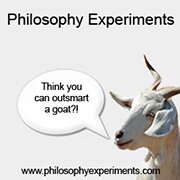Nick Fotion continues our special 50th issue series

tpm cover art by Felix Bennett
Another bad consequence of taking the critical level too seriously is that we would quickly all turn into skeptics. Skepticism has its place in philosophical thinking but it can turn into a vicious philosopher’s game. Non-critical thinking can’t be all wrong since the rules and principles found there are part of what some philosophers call the common morality. It is the morality that, if it were questioned too seriously, would lead to social disintegration. Instead of questioning it all of the time, the critical/non-critical distinctions reminds us to pay more attention to the common morality so that we understand how it can be used to educate our children and to remind adults and children alike of their responsibilities when they are tempted to stray from the fold.
Another reason the distinction between critical and non-critical thinking was and is important becomes evident when we observe philosophers engaging in theory criticism. It is quite common for critics of utilitarianism, for instance, to insist that utilitarians must always be making utilitarian calculations. To be sure, act utilitarians may be addicted to calculating. But rule utilitarians can restrict their calculating ways to the critical level. On that level, they can generate new rules and modify old ones using their calculative skills. But having done that, they can place these criticised rules on the non-critical level and proceed to cite them in ways that make them sound like deontologists rather than true utilitarians.
The critical/non-critical levels distinction is useful not only in showing how utilitarianism is misunderstood, but also in making it clear how utlitiarianism is a much more flexible theory than many philosophers suppose. It is not restricted to the calculative mode of thinking. When the time is right, which is most of the time, a utitilitarian can switch over to the non-calculative mode. A similar analysis can be applied to those who think along Kantian lines. They too can be misunderstood by their critics if these critics focus too much on Kantian thinking done on the critical level and, therefore, ignore what is happening on the non-critical level.
Finally, the importance of the distinction became apparent to me in the context of some writing I am presently doing with regard to the theory/anti-theory debate in ethics. Many critics of theory claim that the burden on ethical theorists of generating ethical rules and principles from pure reason or from a single abstract utilitarian principle is too heavy. Not being able to carry this burden, theorists, it is said, have no role to play in ethics. But theorists need not take on such a burden. Some theorists (not all of them to be sure) get material to theorise about from the non-critical level. They then take one or two ordinary principles from this level up to the critical level. Once there, they analyse these principles, perhaps modify them, and then return them to the non-critical level. So again, the distinction turns out to be useful. This time it helps show that theorists need not be banished from the face of the earth since they may very well be able to play a modest, but important, role in dealing with our ethical problems.
Hail to the critical/non-critical levels distinction! May it have a long and healthy life.
Further reading
War and Ethics, Nicholas Fotion (Continuum, 2007)
Nick Fotion is professor of philosophy at Emory Univeristy and the author of War and Ethics: A New Just War Theory (Continuum)
Read all fifty ideas and more in the special 50th issue of tpm
 Email This Post
Email This Post 



[...] Philosophers’ Magazine continued their best ideas of the century [...]
The distinction between “critical” and “intuitive” thinking is also the difference between syntax and semantics.
You can make rules of ethics but these are only rules in the context of ethics.
Hmm, you said: “… and to remind adults and children alike of their responsibilities when they are tempted to stray from the fold.”
Do we really need more modalities of authoritarianism and obedience?
[...] To Read More… « Social Sciences Journal: Recently Published [...]